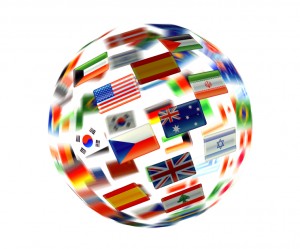 Ban Ki-moon Warns about Dangers Faced by World
Ban Ki-moon Warns about Dangers Faced by World
In his speech at the opening ceremony of the 67th General Assembly session, Ban criticized governments that spend vast and valuable resources on lethal weapons while reducing investment for their citizens.
At this moment of turbulence and transition, people want jobs and the possibility of a decent life. They demand results in real time, now, and not in the distant future, said Ban.
The secretary general recalled that his priorities in his second U.N. mandate are sustainable development, prevention of conflicts, world security, aid to countries in transition, and empowerment of women and young people.
Ban said that sustainable development is the key hope for the future and warned that poverty and inequality are still problems.
He said that the economic crisis cannot be an excuse for failing to accomplish tasks such as the Millennium Development Goals.
The Secretary General also warned about the situations in Afghanistan, Democratic Congo, Sudan and South Sudan, Libya, Myanmar, and the Sahel crisis.
With regard to the crisis in Syria, Ban said it is a regional calamity with global consequences, including a serious threat to world peace and safety, and urged support for the efforts of UN-Arab League envoy to Syria, Lakhdar Brahimi.
President Obama Reiterates Threats Against Iran
U.S. President, Barack Obama, threaten today Iran, during his speech at the General Assembly of the United Nations Organization (UN), though he stated that a diplomatic arrangement with that country is still possible.
The Dignitary reiterated his pressures against Tehran, which Washingotn and its allies accuse of developing a nuclear program with military purposes, but the Iranian authorities assure that it only has peaceful projections.
Obama said that the United States (US) will do everything necessary to prevent that Islamic nation from continue developing its atomic energy project.
The Iranian president Mahmud Ahmadinejad, rejected yesterday in a press interview in New York the sanctions against his country due to that program and stated that he is not afraid of a possible attack from Israel against his country’s nuclear facilities.
In a virtual call for UN to defend Washington’s interests, Obama convened the international entity to condemn the anti-American events in the Middle East, which he described as examples of intolerance.
The wave of repudiation was motivated by the broadcasting of a segment of a film blasphemous against Islam and its prophet Muhammad.
Obama also condemned the death of the U.S. Ambassador in Libya, Christopher Stevens, and three other officials during the attack on the consulate in Benghazi, Libya, and said that this was an action directed against UN also.
In a speech with electoral nuances, the head of the White House reiterated his policy of support for movements in the Middle East countries whenever they coincide with the interests of Washington, and reiterated his administration’s positions regarding that Syrian President Bashar Al Assad must relinquish power.
Japan Coast Guard Drives Off Taiwanese Fishing Boats
Forty Taiwanese fishing vessels which had earlier sailed into Japanese waters around a group of disputed islands have since left, the Japanese coast guard reported on Tuesday according to TV channel NHK.
The vessels set off early on Tuesday morning for the disputed Senkaku Islands (Diaoyu in Chinese), escorted by eight patrol boats, in an apparent show of defiance against Japan’s controversial nationalization of three of the five disputed islands in the East China Sea.
Japan’s coast guard was alerted of the fishermen’s plans to gather all available vessels within about 22 miles (37 km) of the islands and encircle them, and responded by firing water cannons at the Taiwanese ships.
The islands have been at the center of a dispute recently that has triggered violent anti-Japan protests across China and caused Japanese companies to suspend operations in China.
Both Taiwan – to which the pre-1949 Chinese government moved – and mainland China reject Japan’s claims to the islands, which were controlled by the United States after World War II and given to Japan in 1972.
Beijing and Tokyo cannot agree on a maritime border in the economic zones around the islands. Japan claims it has occupied the islands since 1895, while Beijing says Japanese charts dating back to 1783 show the islands as Chinese territory.
Japan also claims that China and Taiwan only began to take an interest in the islands in the 1970s, when evidence was discovered of major subsurface resource deposits in their territorial waters.
The chief of Japan’s Cabinet of Ministers, Osamu Fujimura, said that despite the territorial dispute, Japan aims to resolve the conflict while maintaining friendly relations with Beijing.
Via PL
